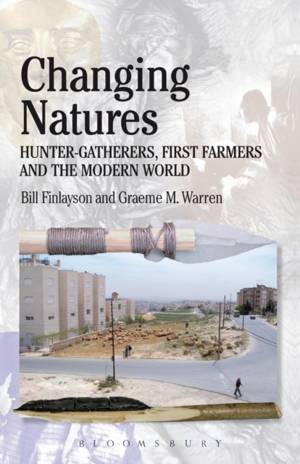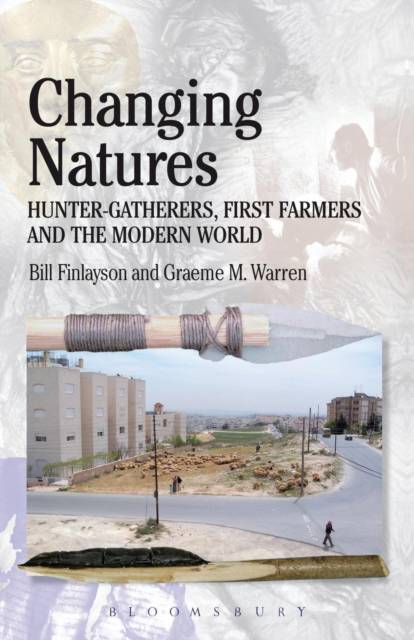
- Afhalen na 1 uur in een winkel met voorraad
- Gratis thuislevering in België vanaf € 30
- Ruim aanbod met 7 miljoen producten
- Afhalen na 1 uur in een winkel met voorraad
- Gratis thuislevering in België vanaf € 30
- Ruim aanbod met 7 miljoen producten
Changing Natures
Hunter-Gatherers, First Famers and the Modern World
Bill Finlayson, Graeme M WarrenOmschrijving
The adoption of agriculture is often described as one of the most fundamental revolutions in human history, the starting point for urbanisation and specialisation. More recently the structure of the Neolithic mind has been proposed as a new cognitive revolution, separating us fundamentally from preceding hunter-gatherers. Without doubting that the so-called Neolithic Revolution was significant, it is important to question how we conceptualise it. This book focuses on two themes central to creating a rounded understanding of the transition: our understandings of hunter-gatherer diversity and change over time, with emphasis on the adoption of agriculture; and the relationships between our understandings of the modern world, and ourselves, and the models we impose on prehistory. The broad geographical perspective adopted here allows important comparisons to be made between two primary study areas, the Near East and Europe.
Specificaties
Betrokkenen
- Auteur(s):
- Uitgeverij:
Inhoud
- Aantal bladzijden:
- 144
- Taal:
- Engels
- Reeks:
Eigenschappen
- Productcode (EAN):
- 9780715638132
- Verschijningsdatum:
- 21/10/2010
- Uitvoering:
- Paperback
- Formaat:
- Trade paperback (VS)
- Afmetingen:
- 137 mm x 211 mm
- Gewicht:
- 176 g

Alleen bij Standaard Boekhandel
Beoordelingen
We publiceren alleen reviews die voldoen aan de voorwaarden voor reviews. Bekijk onze voorwaarden voor reviews.







